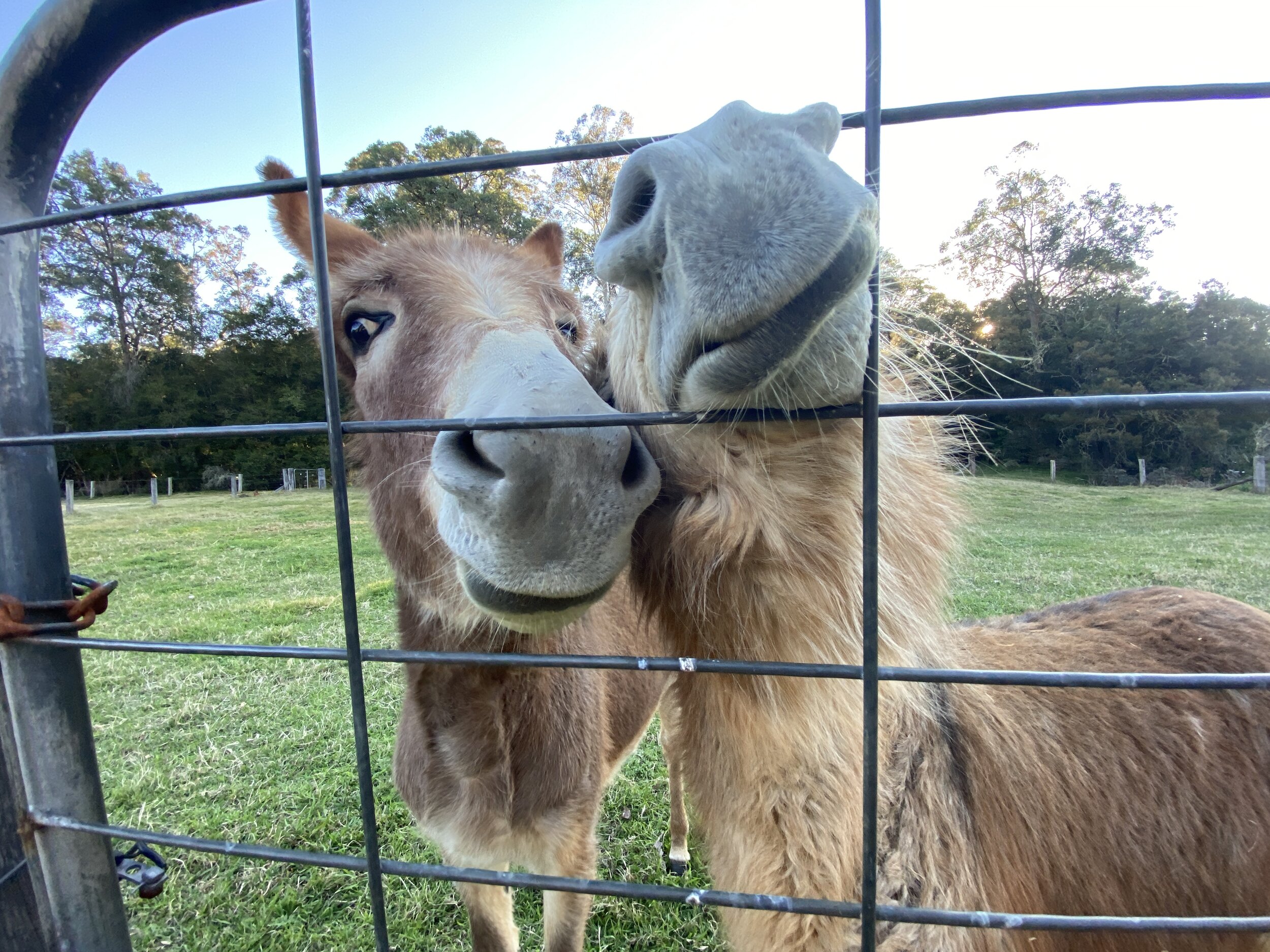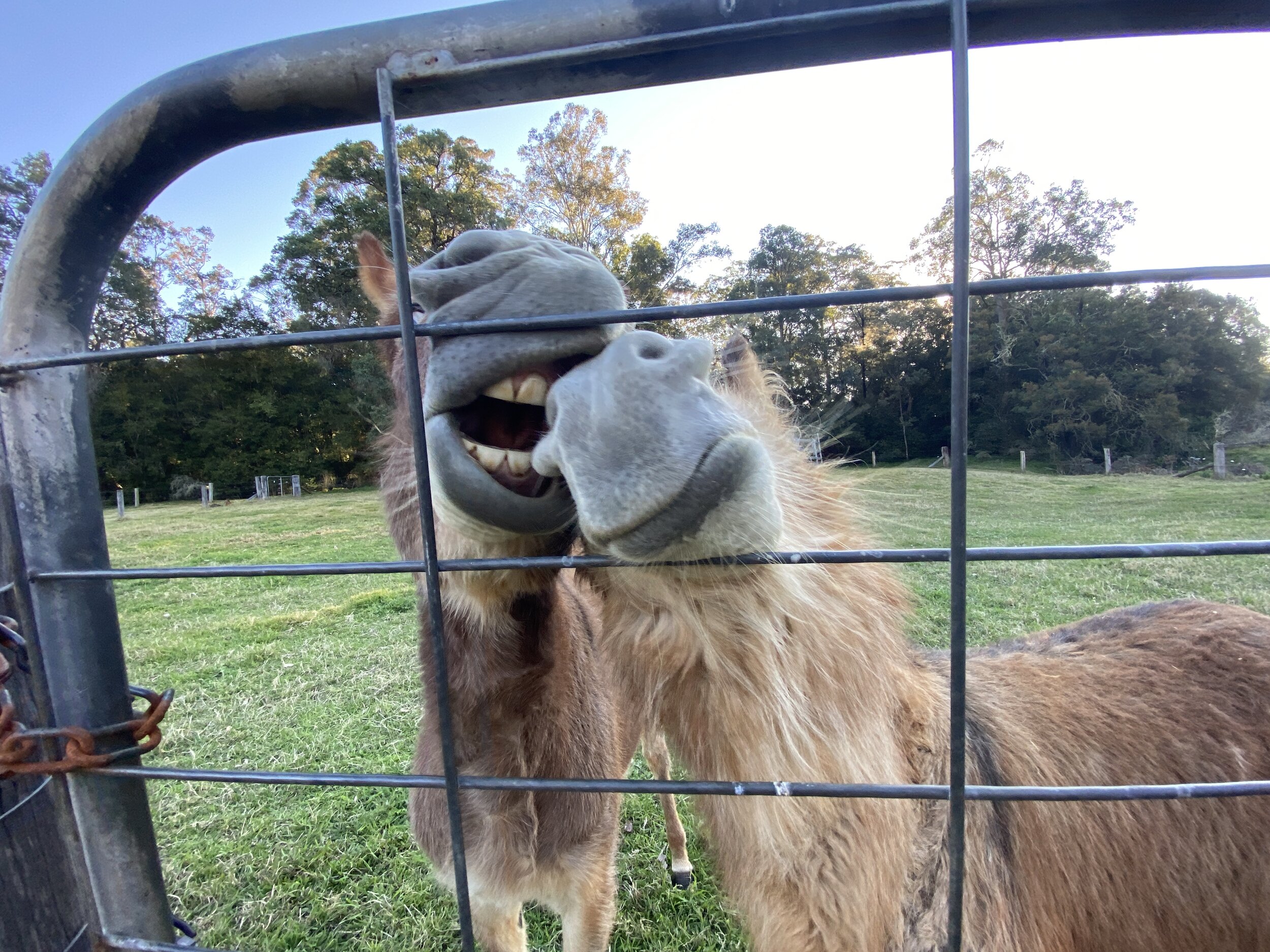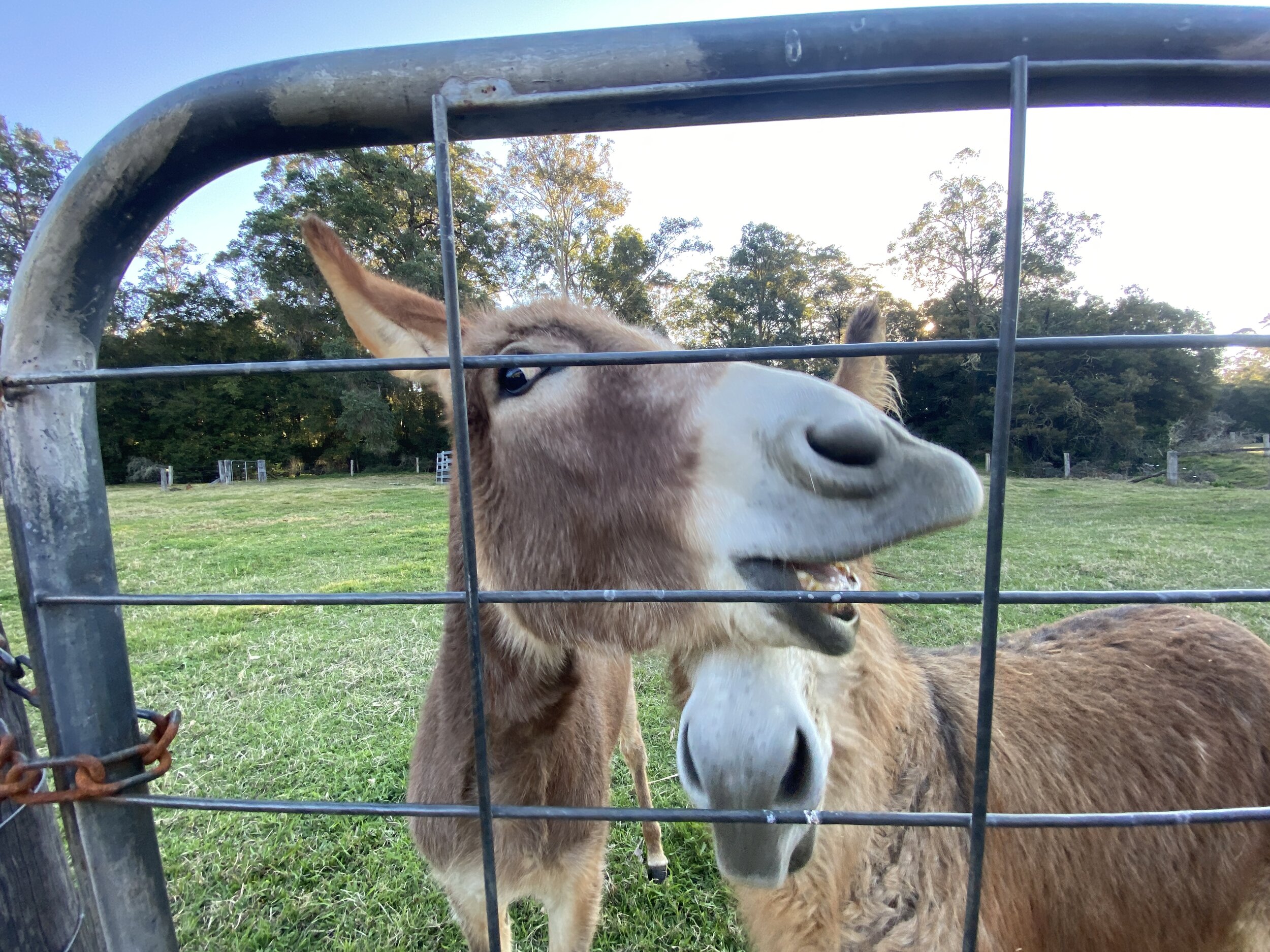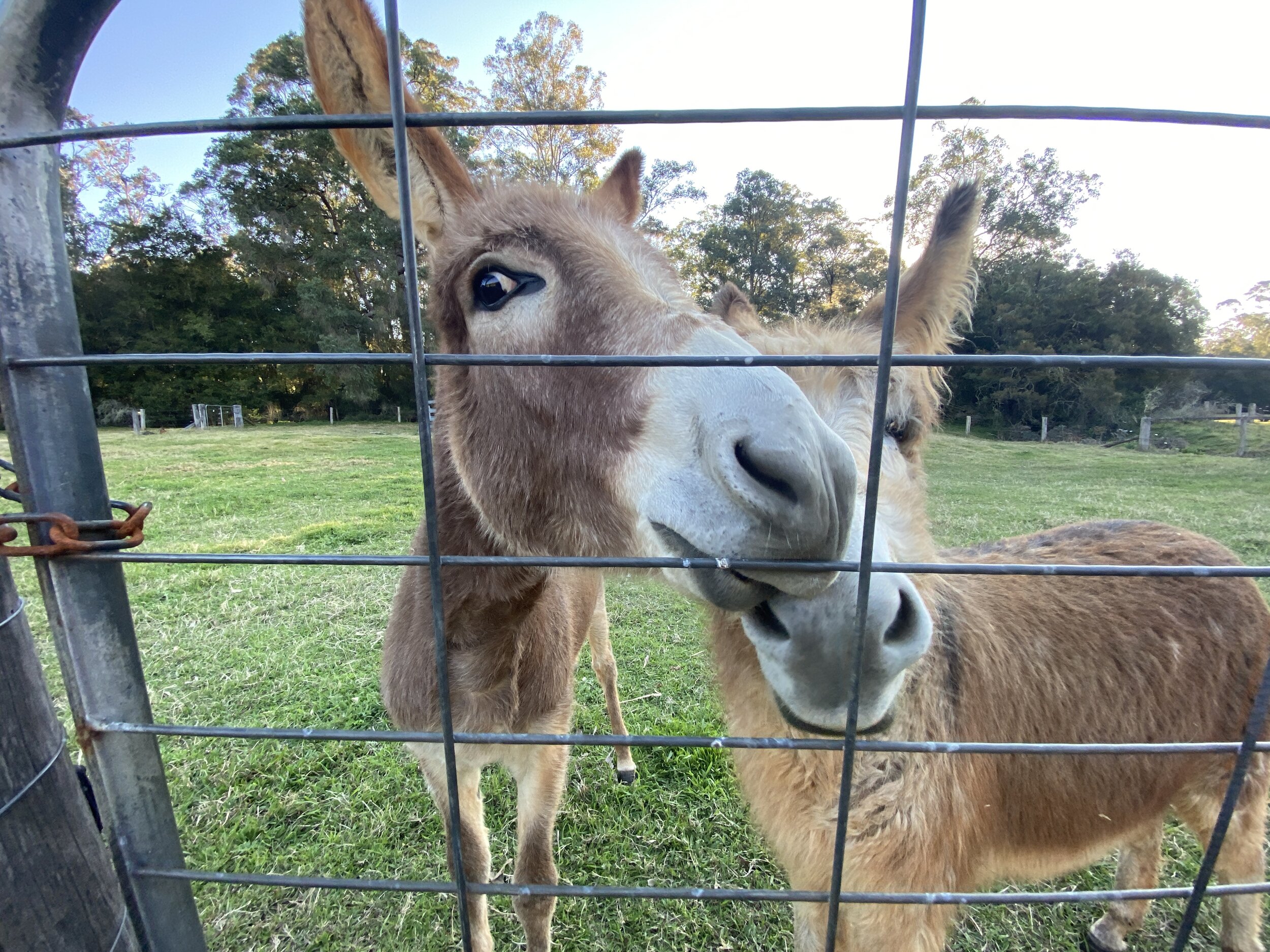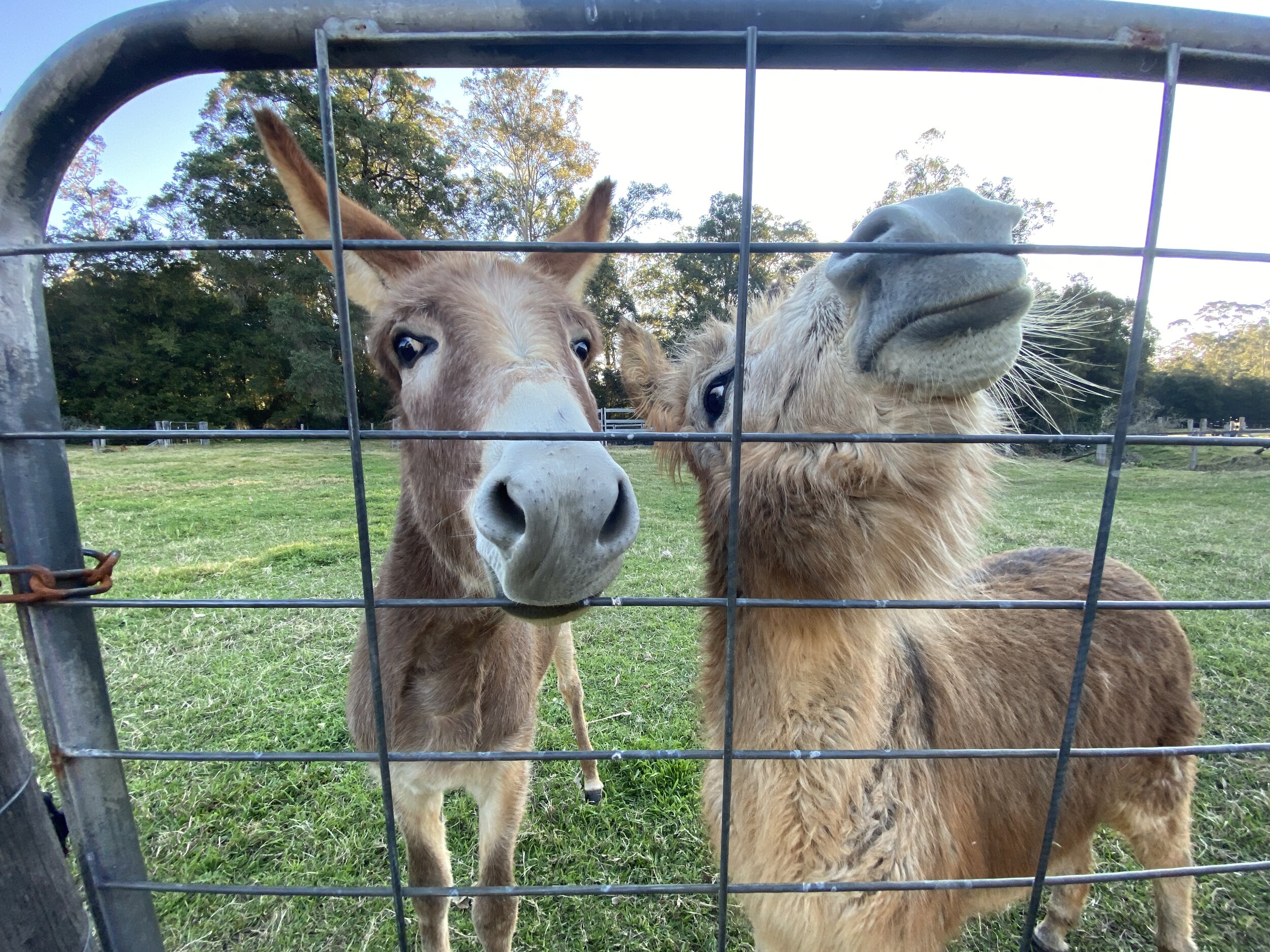With the help of Hunter Region Landcare Network, Wollombi Valley Landcare, and Local Land Service, we’ve set up a few motion-sensitive cameras in critical locations around our bushland and creek-line.
We aim to monitor and track wild dog, feral pig, feral cats, and feral goat activity and hope to monitor platypus activity.
This year we have noticed an increase in dog visits and several native animal carcasses have been left on our paddocks including wallaroos and a wombat. The most recent attack was a wombat found early on a Monday morning following an alert from the Alpacas. He had been badly mauled by a Dog so we took him to Cedar Creek Wombat Hospital for treatment. He survived thanks to the great work at the Hospital.
We have never seen the elusive platypus in our creek but know they were there once here. The good news is that they were spotted two kilometres down the creek last week and they are known to live further up Watagan Creek.
Over the next thirty days, the infrared cameras will hopefully pick up some activity. The programme is managed by HRLN and LLS and is accessible to Wollombi Valley Landcare owners. If you wish to get involved please drop an email to Victoria from Hunter Region Landcare Network on the email ~ lowerhunterlandcare @ gmail.com


